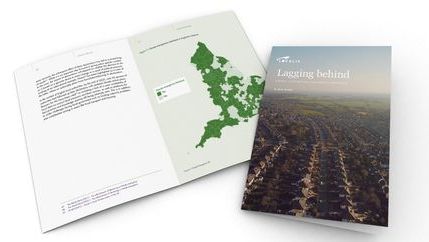
Affordability must define fuel poverty
The current approach focuses on the efficiency of the property rather than whether a household can afford its energy bills. This means that some low-income households are excluded from support, simply because they live in properties that are classed as energy-efficient.
We believe that fuel poverty should instead be measured by whether a household falls below the poverty line after paying for housing and energy, which would provide a clearer and fairer picture of those in need.
One-size-fits-all policies overlook important differences
We also stress that a one-size-fits-all approach to support does not work. Many homes, particularly flats and those in the private rented sector, face barriers to energy improvements. These include needing landlord or freeholder permission, or the requirement for works to be carried out across an entire building rather than just one flat. Policies must be flexible and tailored to the unique challenges of different property types and tenures.
Lagging behind: energy efficiency in low-viability properties
This report raises concerns over the affordability of retrofitting properties and highlights that residents in the North of England will be the hardest hit. Failure to factor in huge regional variations in property costs when incentivising homeowners and landlords to meet national net zero targets risks deepening economic inequality.
Sustainability targets must not come at the cost of higher energy bills
Propertymark remains concerned that the UK Government’s sustainability goals and fuel poverty targets are not always aligned. While low-carbon heating systems such as heat pumps are important for reducing emissions, they are often more expensive to run.
Unless the cost of electricity comes down, there is a real risk that these technologies will leave some households worse off. Without careful consideration, households could be moved out of fuel poverty statistically, by improving their EPC rating, while still facing higher bills.
Scoring a higher EPC might not be as hard (or expensive) as you think
Secretary of State for Energy Security and Net Zero Ed Miliband MP has committed to reintroducing energy efficiency targets and, although the timelines remain vague, agents and landlords can expect that properties in the private rented sector (PRS) will be required to meet EPC C by 2030.
Renters need better access to support
There are particular challenges for private renters, who make up around 35 per cent of fuel poor households, which we have consistently highlighted to stakeholders. These tenants often have limited control over their energy supplier or the ability to make improvements. The UK Government must ensure support reaches these households and is appropriate to their circumstances.
6 million UK households cannot afford to keep warm this winter
Propertymark has long campaigned for incentives and realistic funding for landlords, tenants, and homeowners to upgrade their properties so we can see more energy-efficient homes, lower bills, and reduce emissions in the property sector. We are pleased to support National Energy Action’s Fuel Poverty Awareness Day on 27 November 2024, which highlights how the continuing energy crisis is stretching household, leaving many people struggling in cold, unsafe and unhealthy homes.
Flexible funding and targeted advice are essential
We recommend that DESNZ updates the definition of fuel poverty to focus on income and costs, and financial support schemes should be made more flexible so that households can choose the measures most suitable to them, rather than being limited to pre-approved options.
Bringing down the cost of electricity must be a priority so that low-carbon technologies are both sustainable and affordable. Support with energy bills should focus on those with the largest fuel poverty gaps, and advice must be made easily accessible.
We also called for more proactive targeting of vulnerable households, including referrals through health and social care professionals, and the development of simple online tools for people to check their eligibility for support.
Next steps and continued representation
The UK Government should commission independent academic research into the link between fuel poverty and damp and mould in homes. This is a long-standing issue for both landlords and tenants, and a clearer understanding would help everyone take action that is backed by evidence.
As DESNZ works to revise its strategy, Propertymark will continue to engage with policymakers and make sure our members' insights shape the approach to tackling fuel poverty in the years ahead.







